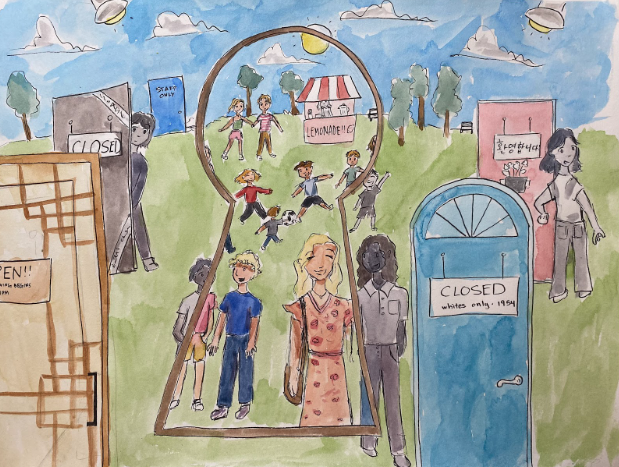Complaining is weird to me. Not because I don’t do it, or because I think I’m above it. Or, for that matter, because I think anyone is above it.
Complaining is weird to me because the context that frames it is a never-ending loop, circling both in and out of itself into infinity. Something that goes wrong in your life that you want to complain about can only be quantified in how you feel it, but you should always be aware that there will be others with much more to complain about.
While I was starting this column, Spotify wasn’t quitting as quickly as like it’d to, so I starting quipping at it in impatient expectation. This laptop, owned by approximately one iota of the world, wasn’t making this application, this wonderful music-sharing application that holds all of history’s wonderful music, close fast enough.
Even while I knew that I was in the middle of this explanation of how weird and subjective I thought complaining was, I complained about my unlimited music-machine not closing itself fast enough. I didn’t even notice.
There’s this implied context that complaining should carry with it, and I hope I start remembering it. The context that you should probably make clear to yourself when you complain: we have it so unbelievably lucky.
No, really. Everyone reading this right now has it unbelievably lucky. We all have the ability to complain about things, and if your Spotify isn’t closing fast enough, and that makes you angry, that’s what complaining is for.
I really hate it, however, when I forget that there’s really no reason for me to place undue value on my trivial complaints.
Of course, there are people in our lives who have it worse than others, even within this extremely lucky context that we live in. Some had it worse in the past, some have it worse now, and some don’t know how (un?)lucky they’re going to have it the future.
Our context, the one that we can vaguely understand on a scale as local as this one, limits us from constantly keeping what we complain about in context of what most of the world is complaining about. That’s not something that we can really help.
I, for example, find myself complaining constantly about how slowly it takes for the water to go from cold to hot. Facebook groups seem to agree that this is something I should find annoying and whine about. This is something that may genuinely cause me, or others, discomfort. After your discomfort passes, however, try context.
The context really is never-ending. It’s an interesting game to play. College applications take a lot of time? True. Know what else takes a lot of time? A five-mile walk for water that countless thousands of people feel lucky to make because people they used to know have a fifteen-mile walk.
It’s a morbid game, sure, but however easy to dismiss, applicable.
Don’t misconstrue this as fatalist. All people can do is fix problems in their sphere of existence, and that is absolutely what they should do until their last breath.
We need to, at least occasionally, remember that there are places around the world that we can’t begin to empathise with, because we would just explode from the thought that people live struggling to find the things that we grow angry at for not warming up quickly enough, or whatever complaint we may have about any of our virtually unlimited unheard of conveniences.
The implied context is that every complaint we make can only be understood in our incredibly lucky frame of reference.
An understandable reaction to things that make you unhappy is complaining, but don’t let your reaction stop there.
Understand, as briefly as you’d like, the context. Then do something about it.
If you don’t feel a lot better about your life by that point, you’ll end just giving others to complain about, and miss out on a lot of fun in the process.

















